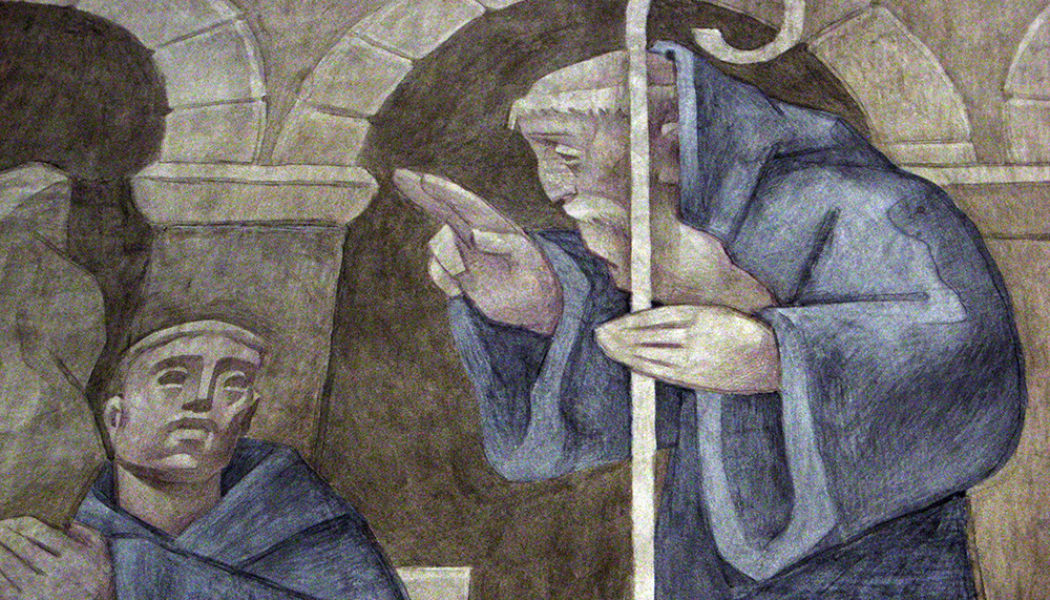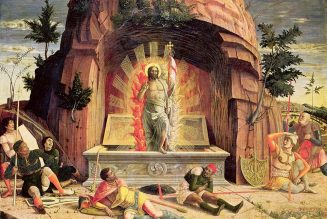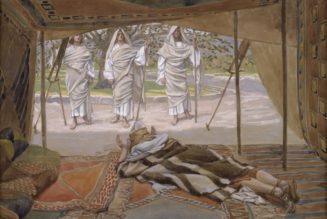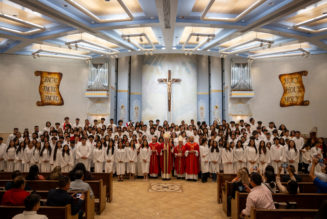
We call St. Benedict of Nursia the father of monks, and his teaching on spiritual fatherhood drew me, in part, to become a Benedictine oblate. Thirteen years ago, as a father of a growing family, I was looking for greater focus and direction in my spiritual life, especially in integrating prayer, work and family life. I thought back to a Cistercian monastery where I had made some retreats in high school, where I first encountered St. Benedict’s great Rule for monks, which he wrote while serving as abbot of the monastery Monte Cassino in the 6th century. The monastery seemed to fit as a model for the kind of life and culture I sought to build within my home and through my work as a theologian.
For a father, St. Benedict’s teaching on the role of the abbot stands out the most, particularly chapters two and 64. The name “abbot” stems from the Aramaic word for “father,” abba, and St. Benedict reminds abbots that they are named after our heavenly Father, and, therefore, must always seek to model God’s loving mercy and justice. The abbot will have to give answer to God for his disciples. Not that they have to be perfect, but the shepherd must make every effort for the care of his sheep and not allow them to stray without doing all he can to bring them back. He should show no favoritism, but, rather, adapt himself to the needs of each monk, following St. Paul’s teaching in 2 Timothy 4:2: “‘Convince, entreat, rebuke’: mingling according to circumstances gentleness with severity, let him show the sternness of a master, the affection of a father: that is to say, he ought to convince the undisciplined and restless almost harshly: but to entreat the obedient, the meek and the patient, that they progress still better” (ch. 2).
He especially entreats abbots not to become negligent in correcting his sons’ faults, like the priest Eli (1 Samuel 2), employing discipline early on before faults engrain themselves in the lives of his monks. He reminds them of the weightiness of their vocation and encourages them to remain fixed on the importance of spiritual goods before all the many earthly concerns that weigh on his mind in governing a community. If the abbot trusts God and fulfills his duties, God will provide for all that is needed.
In chapter 64, which covers the election of the abbot, St. Benedict says that the abbot must serve rather than be served, in imitation of Christ. To fulfill his role properly, “It behooves him therefore to be learned in the divine law, that he may thence bring forth things new and old; to be chaste, sober, merciful; and let him always exalt mercy above judgment, that himself may attain it. Let him hate the faults, let him love the brethren. In the matter of correction let him act prudently and not too severely, lest while he desires to scrape off the rust too much the vessel be broke … and let him take pains to be loved rather than to be feared. Let him not be full of commotion nor anxious, let him not be over-bearing nor obstinate, jealous nor too suspicious.” Here we see St. Benedict’s noted gentleness, through which he seeks a firmness and discipline that guides daily life without becoming too harsh or burdensome. The abbot must understand the needs of the monks, not pushing them too hard, but, at the same time, continually encouraging them daily to take on the faithful yoke of Christ in order to reach the perfection of love.
Benedict offers a full catechesis of fatherhood, gained through his own long experience of guiding souls. Nothing of what I have referenced bears exclusively on the monastic life. Fathers also are the spiritual heads of their households and will have to answer for the souls placed under their care. They need to attend to the particular needs of each child, urging them on or restraining them as their dispositions and the moment dictates. Spiritual goods must be placed before the many material needs that the father must provide, knowing that all of his work ultimately serves these higher goods. Fathers must balance firmness and correction with tenderness and love so that children do not recoil from the family and the faith.
Ultimately, fathers must put God first in their own lives, living a life of prayer and virtue, to provide a model of the Christian life for their children. Experience tells us that fathers uniquely stand in the place of God the Father, just as St. Benedict tells his fellow abbots. If a father turns out to be negligent or too harsh, the children risk seeing God as absent from their lives or a harsh judge whom they fear to approach. On the other hand, if fathers embody the Father’s love for their children, they more easily will be able to find their own place in the community of the Church, integrating ora et labora (prayer and work) within a faithful Christian life.









